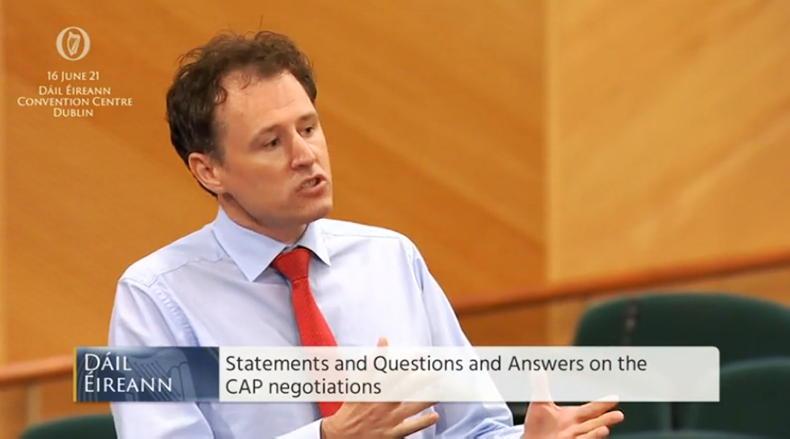The decision by Coillte to partner with a UK-based investment fund in a plan to purchase and plant 12,000ha of land has provoked a furore among farmers, private foresters and rural politicians.
The State forestry body has been accused of facilitating a “land grab” by international hedge funds, with detractors warning that ordinary drystock farmers will be blown out of the land market by the institutional investors.
Moreover, the fact that the Ireland Strategic Investment Fund (ISIF) – the country’s sovereign development fund – has poured €25m into the land purchase venture has rubbed salt into an already very raw wound.
Minister for Agriculture, Charlie McConalogue and Minister for State Pippa Hackett – who is responsible for forestry – dived for cover as the storm clouds gathered this week, with both distancing themselves from the Coillte deal.
Coillte defended its actions at an Oireachtas committee meeting before Christmas, even though its partner in the land purchase project, Gresham House, had not at that stage outlined the details of its planned investment.
The State forestry body has been accused of facilitating a “land grab” by international hedge funds, with detractors warning that ordinary drystock farmers will be blown out of the land market
Coillte CEO Imelda Hurley told deputies that the State forestry body was taking a more proactive role in afforestation and aimed to plant 100,000ha of native and commercial woodlands by 2050.
She argued that Coillte’s move was necessitated by the fall-off in private planting, which has dropped to around 2,000ha per year despite the requirement under the Climate Action Plan that the State plants 8,000ha per year. Hurley maintained that international investors were required, as the land purchase element of its planting plan could cost up to €2bn.
But the tie-up between Coillte and Gresham House means the UK investment fund will benefit from the forestry premiums on offer – which Coillte has been precludedfrom receiving since the early 1990s – while the State body will be paid fees to manage the British firm’s forestry estate.
It could potentially result in tens of thousands of acres of Irish land being bought by foreign investment funds, with this purchase effectively being bankrolled by the State
Coillte’s climate platitudes aside, the joint venture with Gresham House constitutes a fundamental shift in the State’s forestry policy, away from a farmer-centred approach, and will have long-term implications.
It could potentially result in tens of thousands of acres of Irish land being bought by foreign investment funds, with this purchase effectively being bankrolled by the State through the provision of forestry premiums and grants.
One individual likened the Gresham House-Coillte package to the State funding foreign investors to buy Irish land, and then helping them to repay the loan.
Those involved in the private forestry sector are also angry and frustrated with the Department of Agriculture.
They point out that the collapse in private planting levels is a consequence of the Department’s inept and disastrous handling of the forestry licensing regime.
It may have to if it is to compete with dairy-farmer buyers, a red-hot leasing market and latent land-owner antipathy to forestry
Will the Gresham House-Coillte partnership be able to purchase sufficient land to reach its targets?
Who knows.
Getting hold of 12,000ha or 30,000ac will certainly not be simple in a market that is already on fire. There are suggestions that the Gresham House-Coillte fund will pay up to €9,000/ac for new ground.
It may have to if it is to compete with dairy-farmer buyers, a red-hot leasing market and latent land-owner antipathy to forestry.
The Dealer will be watching this space with interest.







 This is a subscriber-only article
This is a subscriber-only article










SHARING OPTIONS: